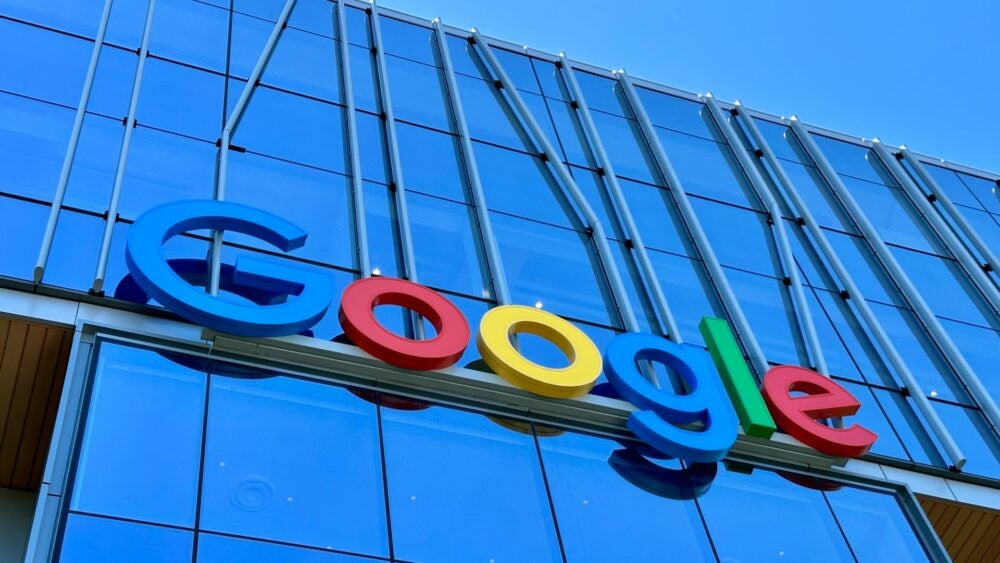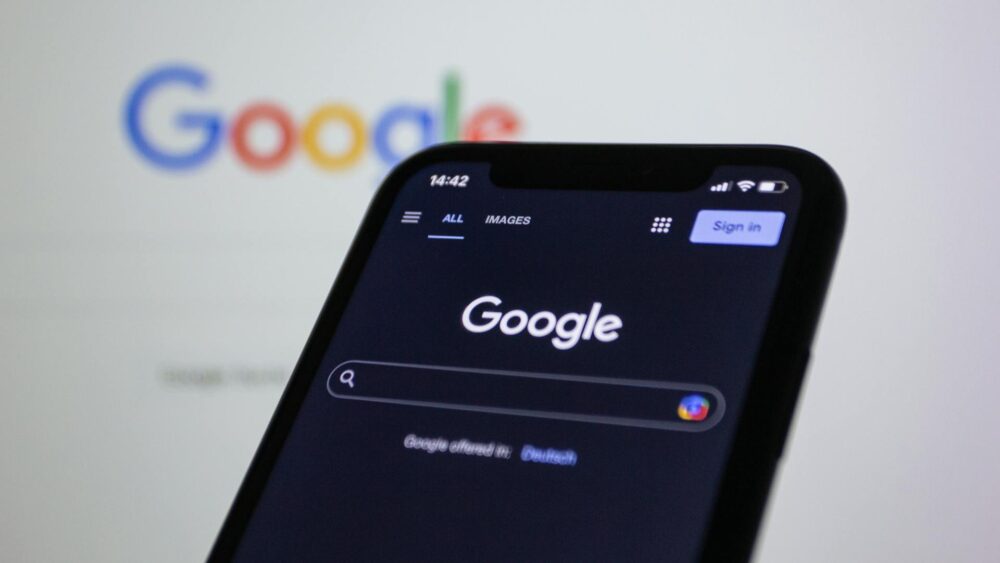The advent of generative AI has placed those in and around the tech industry under constant pressure to predict the technology’s future. But precise predictions about the impact of generative AI on specific markets are hard to come by, and online search is no exception. As Google faces mounting antitrust scrutiny, the company has leveraged uncertainty surrounding generative AI to cast doubt on the wisdom of antitrust enforcement. The fact of the matter is that uncertain business models based on generative AI products make robust antitrust enforcement more essential, not less.
With Google already designated as a monopolist in online search, antitrust remedies should be broad enough to constrain Google from using its monopoly power in online search to harm competition and innovation in the nascent market for generative AI. There is a genuine risk that its entrenched dominance could extend into generative AI, potentially suffocating the innovation that thrives in truly competitive markets. History has repeatedly shown that competition drives technological advancement, while concentrated market power often leads to stagnation. The recently concluded remedies trial in the Google search antitrust case provides a window into how thoughtful remedies could foster innovation and prevent one company from controlling search, generative AI, and the nexus connecting them.
Antitrust law has historically helped clear the way for smaller companies to drive innovation in early stage technologies. Competition incentivizes innovation because companies that want to gain market share (in a manner that complies with antitrust law) must produce something valuable that their rivals cannot immediately replicate. A company that creates an entirely novel product or meaningfully improves an existing one will raise its individual market demand and increase its profits.
This system incentivizes technological competitors to innovate by forcing them to compete on the merits of their products, not the power of their market position. For instance, antitrust enforcement was a critical motivator for IBM, which dominated mainframe computing for decades, to voluntarily unbundle its hardware and software offerings in 1969 as an effort to avoid further antitrust litigation. This “great unbundling” enabled the development of software compatible with IBM machines, sparking explosive growth and innovation in the computer software market through the 1970s.
In the search antitrust case pending before U.S. Judge Amit Mehta, the plaintiffs proposed a comprehensive remedy package designed to address three key ingredients for jumpstarting competition: (1) search distribution, (2) access to data, and (3) syndication. These remedies complement an additional proposal that aims to restrict Google’s ability to leverage its search monopoly by pre-screening its investments in upstart AI companies. Testimony provided during the remedies trial provides glimpses into how historical patterns may repeat themselves in the intersecting search and generative AI markets.
Search Distribution
Several key provisions of the DOJ and states’ proposal aim to weaken Google’s grip on the distribution channels that it has used to stymie competition. Specifically, they seek to restrict Google from paying third parties for preferential treatment and the self-preferencing of its own products on Android. These provisions have the potential to benefit innovation in both search and generative AI. If Google is willing to relinquish tens of billions of dollars in revenue each year for default status across the web, the amount of value it gets in return must exceed that number by a significant amount. By empowering competitors with better access to distribution, Google will need to work harder to retain market share.
Given that Google has locked up channels of distribution in the market for search, the court might be concerned that the company is or will repeat the same playbook for generative AI. Indeed, testimony from the remedies trial disclosed that Google recently paid Samsung “enormous sums” for installation of the Gemini app on its phones, and Dmitry Shevelenko, a senior executive at Perplexity, testified that his company has had limited success in securing distribution agreements due to fear of reprisal from Google.
Payments and pressure from Google to give its generative AI products default status on web browsers, consumer devices, and other distribution channels might replicate the anticompetitive effect of Google’s conduct in the search market.
If Google is prohibited from such behavior, the generative AI products of smaller companies might be selected as the default option on a greater share of consumer devices, allowing users to regularly encounter a more diverse array of generative AI products. Since the provisions of the plaintiffs’ proposed remedy aimed at search distribution are scoped to include Google’s generative AI products, they would make it easier for its competitors to get their products in the hands of consumers and strengthen the incentives of all market participants to compete on the merits.
Access to Data
In seeking to deny Google the fruits of its illegal conduct and ensure that its monopoly power does not rematerialize, the plaintiffs’ proposal would require Google to share certain scale-dependent data and prevent it from obtaining exclusive access to other sources of valuable information. The point of these proposals is to help narrow the quality gap that has resulted from Google’s illegal conduct, enhancing the viability of smaller rivals.
Under the proposed remedy, Google must make two sources of scale-dependent data available to qualified competitors that meet certain privacy and security standards: user-side data and the web index. As defined by the plaintiffs, ‘user-side’ data includes all data obtained when a search engine interacts with a user’s device (e.g., behavioral data such as a user’s clicks and queries). This data serves as a crucial input for algorithms designed to return the most relevant results to users, particularly for less common “long-tail” queries, which disproportionately contribute to the overall quality of results. Sharing user-side data might thus enable smaller competitors to improve their search engines even well after that data is no longer being received. It could also help vendors of generative AI products to potentially build out their own search functionalities. Nick Turley, the head of product for ChatGPT at OpenAI, testified during the remedies trial that his company envisions ChatGPT becoming a “super assistant” capable of performing many tasks for users. He said that search technology will be a “necessary component” of this AI assistant because it will require access to current and factual information to effectively act on behalf of users.
The second source of data the plaintiffs propose should be shared is Google’s web index. The company has disclosed that its index of the world’s web pages exceeds 100,000,000 gigabytes in size and contains more than 400 billion documents. No company can build a search engine without access to an index of the web, and Google’s is by far the largest and freshest when it comes to identifying and adding new and relevant pages that can be served up in search results. Many generative AI products have also come to rely on web indexing for model training and fine-tuning as well as supplementing user queries with relevant information to make query responses more accurate and timely. Notably, Eddy Cue, Apple’s Senior Vice President of Services, emphasized during the remedies trial that generative AI companies “have to get better at the search index part” to improve the quality of their offerings.
Requiring Google to share its index could decrease the costs of building both search engines and generative AI products across the industry. Microsoft Bing already has a history of syndicating its web index to smaller competing search engines like DuckDuckGo and Yahoo, enabling their continued participation in the market. If Google is required to share its much larger web index, the equilibrium number of search engines in the market would likely further increase. Generative AI products could also use the index to improve the quality of their outputs and build sufficient scale to construct their own indexes over the medium term. At the remedies trial Turley also said that OpenAI’s web index has been unable to match the size and comprehensiveness of Google’s, and that over half of prompts submitted to ChatGPT would benefit from access to the niche information contained only in Google’s index.
Finally, the plaintiffs’ proposed remedy package would seek to level the playing field by restricting Google’s ability to secure exclusive access to data and other technologies useful for generative AI. One way Google is leveraging its existing monopoly power is securing exclusive access to data valuable for AI training. In one prominent case, Google is paying Reddit for the exclusive ability to train its generative AI products with the social media company’s content. At trial, Google DeepMind executive Eli Collins revealed that even when publishers opt out of having their data used to train Google’s foundation models, that data still gets used in Google’s search AI products and features. Google’s monopoly power in search gives the company unique access to use these sources of data which are unavailable to rivals.
Syndication
The plaintiffs propose ordering Google to syndicate its search engine, ads, and related search features to qualified competitors at marginal cost. This sharing will require Google to enable competitors to submit queries and display the results that Google’s own search engine would provide, including ranked organic links and features like autocomplete and “did you mean”. These remedies are designed to provide competitors with a runway to quickly improve their quality and achieve enough scale to durably compete in the search market.
In the past, compulsory licensing of a monopolist’s proprietary technology during antitrust proceedings contributed to the open innovation ecosystems that marked the early stages of computing technology: in 1956, both AT&T and IBM, then two of the leading technology companies, were required by separate antitrust consent decrees to license their entire portfolio of patents, including many key technologies such as the transistor. Because of these permissive licensing environments, the early computing industry witnessed the widespread diffusion of new technology and low barriers to entry for innovative startups. Empirical analysis of the patents licensed under the AT&T remedy found that it led to a 12% increase in innovation (relative to non-licensed patents in the same technology class) and a substantial increase in overall innovation (relative to subclasses of technology that did not feature licensed patents). These increases were driven by small, younger companies.
The licensing provisions of the plaintiffs’ proposed remedy may pose a similar opportunity for the search market. Google’s many years of anticompetitive conduct have limited industry-wide innovation and exacerbated the quality gap between its search technology and that of its competitors. While the AT&T and IBM consent decrees went much further than the plaintiffs’ proposed remedy, syndicating Google’s search and text ads offerings could still enable smaller companies within this industry to quickly develop their own high-quality search offerings. The plaintiffs’ proposed remedy is purposely built for this outcome: it empowers qualified competitors to submit queries to Google and to tailor their usage of syndicated results for their own needs.
Those Who Ignore The Past
The remedies proposed in the case before Judge Mehta are not just about correcting past harms – they are about ensuring that the conditions for monopolization do not extend into the future. Addressing distribution bottlenecks, unlocking essential data, and enabling access to syndicated results could open the door to the kind of competition that fueled earlier waves of digital innovation. Absent comprehensive remedies, the same gatekeeping that has stifled competition in search could extend into generative AI – undermining the promise of this technology in its earliest stages of development. Robust antitrust remedies represent a profound opportunity to break with the past and enshrine a more open and dynamic future for generative AI.



